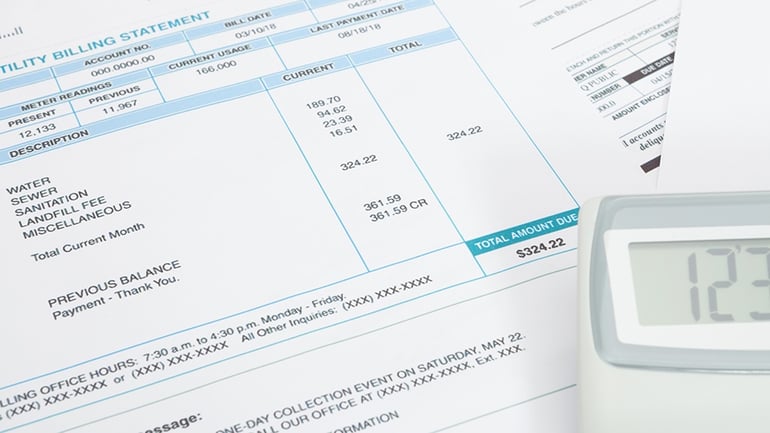
According to Fox Business, the U.S. Energy Information Administration estimates that air conditioning and heating accounts for about 47 percent of your residential annual utility bill. This means that you’re spending an average of $375 on air conditioning alone, primarily during the summer months.
Turning off your air conditioner can lower the annual utility bill, but now you’re sacrificing comfort for cost. Here are a few reasons why your energy bill is soaring -- and how to fix it:
- Your home has poor insulation. This is the biggest energy suck, and it’s the most dangerous to your bill because you’re not likely to see where air leaks are coming from, including cracks in the foundation, tiling, wall corners, and other places you don’t often look at.
To prevent this, get an energy audit. A professional will search for energy wasters around your home and give advice on immediate solutions and preventative HVAC maintenance. - The programmable thermostat switch is always “on”. Constantly adjusting your thermostat to match the day’s temperature causes your energy bills to quickly rise, and you waste money while you’re away or sleeping.
If your home has zoned cooling and heating, install a programmable thermostat in each zone, especially if you have rooms that are unoccupied for long periods of time like a spare bedroom or unfinished basement.
You should also avoid the manual override setting, and install this device away from HVAC vents, heat-generating appliances and electronics, open doorways, and direct sunlight. - Your home has faulty ductwork. Based on Ductwork Design 101, your air ducts should be sealed and well designed at installation. However, if they’re not, it could cost you an increase on your utility bill.
Seal your home’s ducts to improve energy efficiency, protect indoor air quality, solve uneven cooling, prevent “backdrafting”, and more. - Your water heater isn’t insulated. Insulating your hot water tank is an easy and inexpensive way to improve energy efficiency and save you money each month.
If you have a newer model, your water heater is likely already insulated. If your appliance has an R-value of less than 24, get a water heater insulation blanket to lower the costs.
Tip: The U.S. Department of Energy suggests that “if you don't know your water heater tank's R-value, touch it. A tank that is warm to the touch needs additional insulation.” They also offer step-by-step instructions on how to install the insulation blanket. - You’re operating an inefficient unit. Warner Service has covered many ways that your air conditioner costs you, including basic inefficiencies, leaks, and old age.
To prevent this, schedule a maintenance visit with each change in season, especially if you live in a climate where seasons are less gradual and harsher. - You’re not using “energy-saving mode” on your A/C unit. When you’re not at home, use the energy saver option rather than turning it off. This keeps your home cool while you’re away, and it means less work for the unit because it doesn’t have to turn back on to cool your home again.
- You leave doors open. It’s important to understand that heat rises. If you have a first-floor A/C unit, shut the second-floor doors and windows, so your air conditioner has less space to cool.
A few other reasons that your energy bill is high could include:
- You leave appliances like coffee makers, phone chargers, and toaster ovens plugged in even when they’re not in use.
- You use old appliances like refrigerators instead of new, energy efficient ones.
- You use the oven or stove when it’s hot outside.
- You use your washing machine, dishwasher, and dryer too often.
- You opt for full-room lighting instead of lamps, which are more effective in brightening a specific area and lowering your bill.
- You leave the lights on during the day.
- You leave ceiling fans on when the room is empty.
- You didn’t switch the ceiling fan’s direction based on the season.
- You don’t use heavy drapes or mesh-like solar screens/window films.
- You open the basement windows, letting in the warmest, humid air.
- You don’t have the right landscaping to shade your home.
If you're ready to stop spending so much on your energy bill, click below to download Warner Service's Energy Bill Checklist for easy ways to save:


